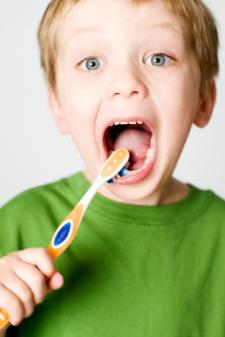Cardiff Teddy Bear Hospital
 A recent graduate talks us through her experiences of volunteering and the understanding she gained.
A recent graduate talks us through her experiences of volunteering and the understanding she gained.
During my time at Cardiff University School of Dentistry I was part of a volunteering group run by medical and dental students called Teddy Bear Hospital Cardiff. The aim was to work with local schools to reduce children's fears of medical/dental/healthcare appointments, needles and visits to hospitals. The children would also gain a better understanding of the need for healthcare treatment, how to prevent health care problems as well as being acclimatised to the sights, smells and sounds of the medical / dental / healthcare environment.
Local schools were contacted and asked if they would like a workshop from dental /medical students. The response was overwhelming and we received a lot of positive feedback from head teachers after our events. All volunteers were students at Cardiff Medical School or Cardiff Dental School. We all received Child Protection Training and had a clear Criminal Records Bureau (CRB) disclosure check.
We visited primary schools and ran various interactive workshops on subjects that included healthy eating, hand washing and teaching about the different parts of the human body. The medical students held 'teddy consultations' with 'teddy doctors' (medical students) where they treated what might be wrong with a teddy. This started with all the teddy bears sitting on chairs in a waiting room.

Teddy Bears waiting for their appointment at Teddy Bear Hospital
At the consultation - if the bear had a broken leg an 'x-ray' picture would be produced and the bear would be given a bandage for its broken leg. Sometimes a prescription would be given and the teddy bear would be given hugs from the child if they were feeling sad.
The children sometimes would say that their teddy was unwell because their teddy had a certain disease / condition. It was sometimes the case that the teddy bear had the same disease as a close relative of the child. This gave the child an opportunity to discuss any treatment which concerned them with regard to their sick relative.
The Workshops
The dental workshops included teaching the children about healthy diets and sugar avoidance to prevent dental decay. This was done with the use of large fake plastic foods (for example apples, chocolate bars, milk cartons, fizzy pop drinks), which the children were asked to place in to 'good' and 'bad' categories.
The workshops also included tooth brushing demonstrations and instructions. The children were taught by using a large puppet with giant teeth and a huge toothbrush. The children took it in turns to brush the giant models of teeth. At the end of every workshop each child was rewarded with a 'champion toothbrusher' sticker. They were also given take home leaflets for their parents on the following subjects: diet, tooth brushing and oral hygiene.
On a personal level, this volunteering helped me gain experience with working and communicating with children. I felt much more confident to be able to provide a dental clinical examination on a child, reassure them and put them at ease so they were more compliant to receive any required dental treatment. This not only made working much easier but was personally very rewarding.
Cardiff University Graduate
Your Dental Protection indemnity can travel with you worldwide.
Find out more